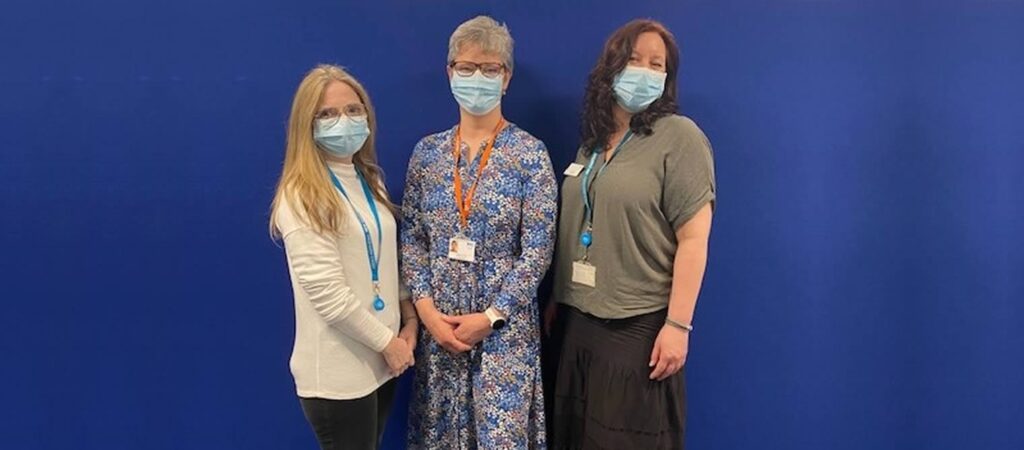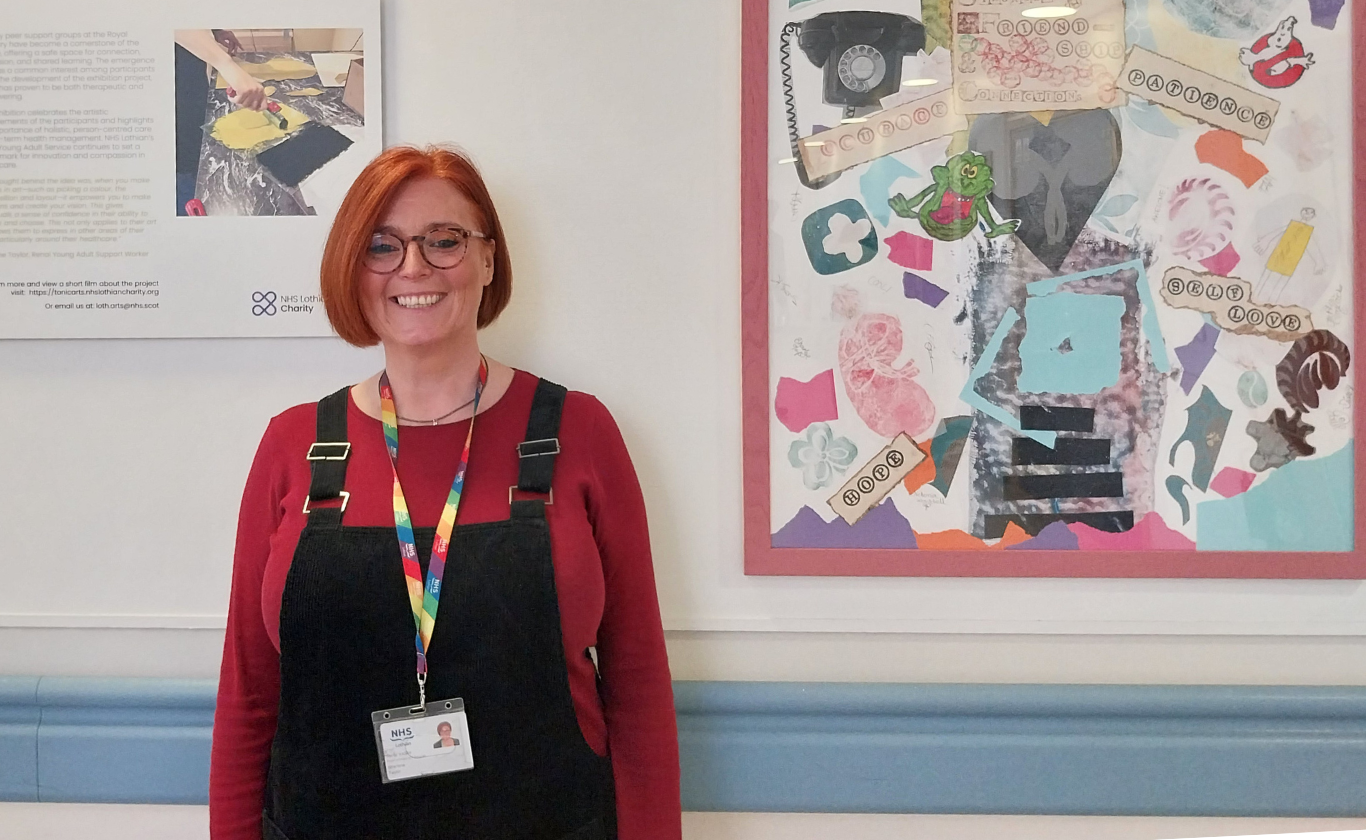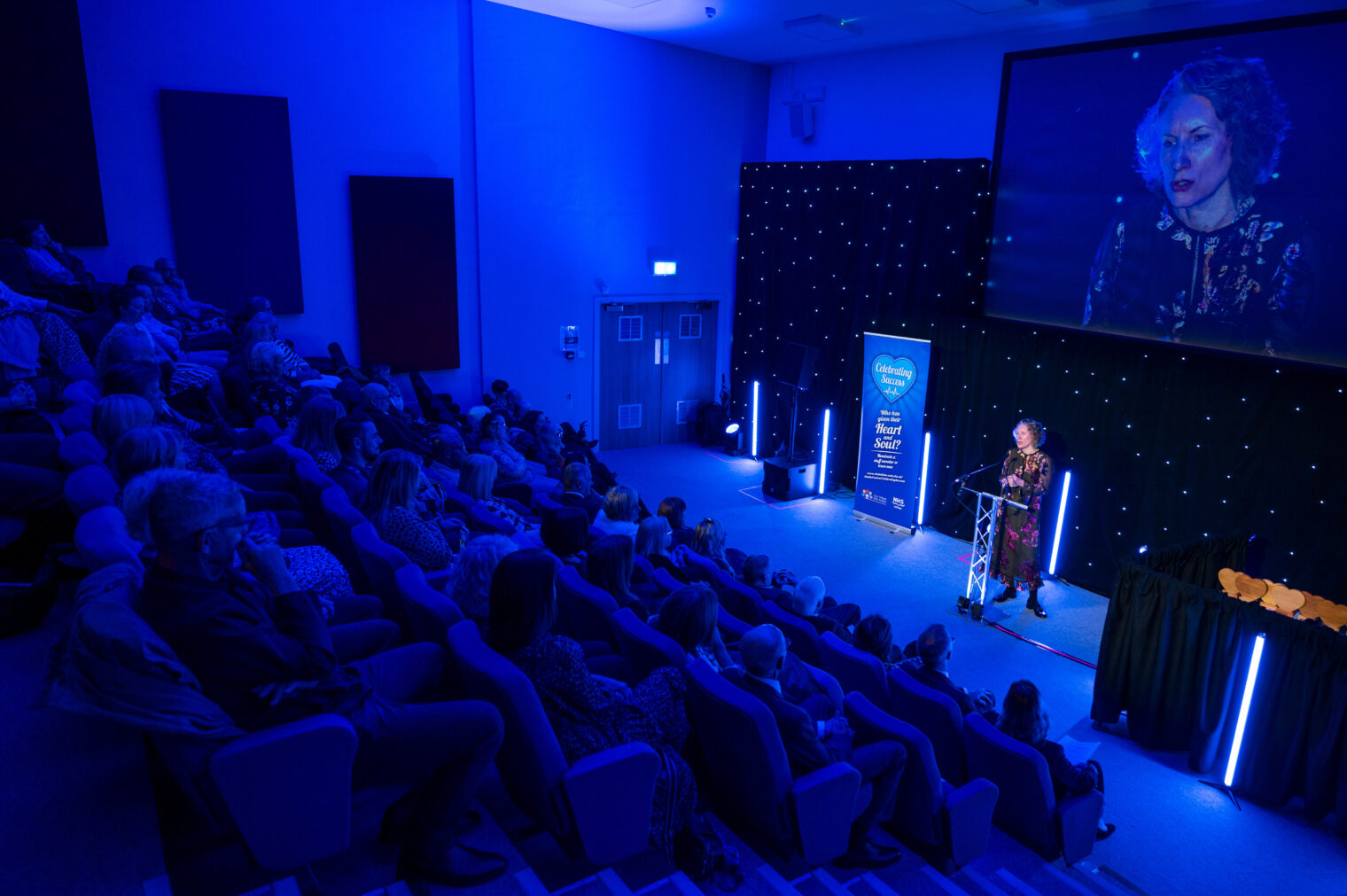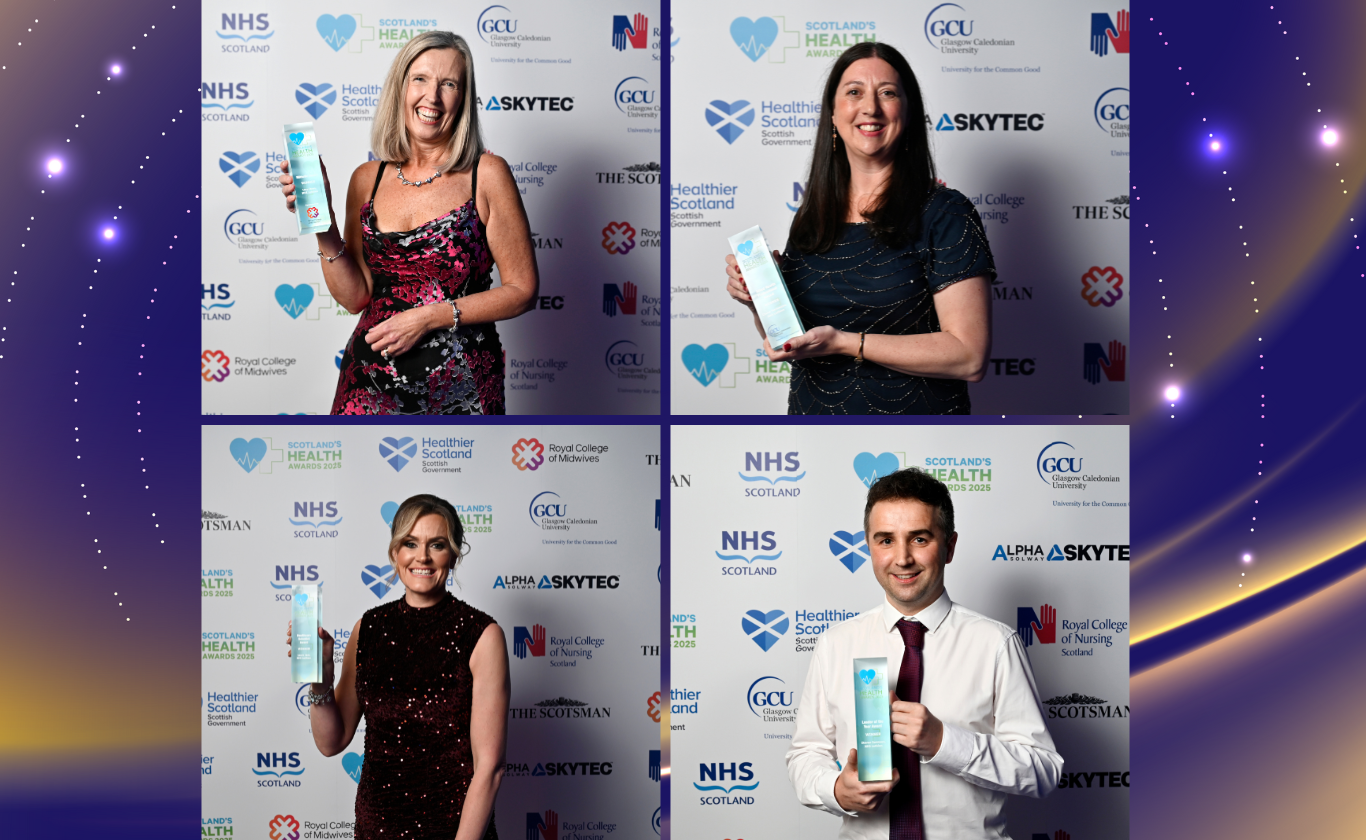For International Epilepsy Awareness Day on 26th March 2022, also known as Purple Day, we’ve spoken to some of our amazing staff about how they support people with the condition. Epilepsy is the most common chronic neurological condition with around 55,000 people living with epilepsy in Scotland, and approximately eight people diagnosed each day.
Yvonne (pictured with her colleagues, Sarah and Rachel) is an Epilepsy Specialist Nurse at our Department of Clinical Neurosciences. Here, Yvonne tells us all about her team’s work:
“I’ve been an Epilepsy Specialist Nurse for 24 years now.
Sarah, Rachel and I have around 40 years combined experience in the field. We trained in neurosciences and practiced in neurology and neurosurgery wards before our current roles. No two weeks are the same, but clinics are a big part of our days.
These are where we meet or telephone newly diagnosed patients to answer their questions and talk about their concerns.
We also review people who have had a diagnosis of epilepsy for a while and who are struggling to become seizure-free, as well as teenagers transitioning to adulthood and expectant mums.
Treatments can include medication, vagal nerve stimulation or surgery but we’re always patient-focused and so decisions are based on what is best for each individual.
The new Department of Clinical Neurosciences has been treating epilepsy patients for about two years now and is a much more pleasant environment to provide and receive care in.
It’s modern, clean and with much better transport links for patients.
We have a fabulous neurophysiology department and our theatre spaces are marvellous – we really can provide first class care for our patients here.
It’s also much better for staff wellbeing, with more options for refreshments and plenty of outdoor spaces, including an open balcony for us to get some fresh air.
Our staff are incredible at what they do. I think we all agree that the absolute best part of our job is when you can help someone through a tough time and see them living their best life once again.”
For more information on Purple Day, you can visit Epilepsy Scotland’s website.























